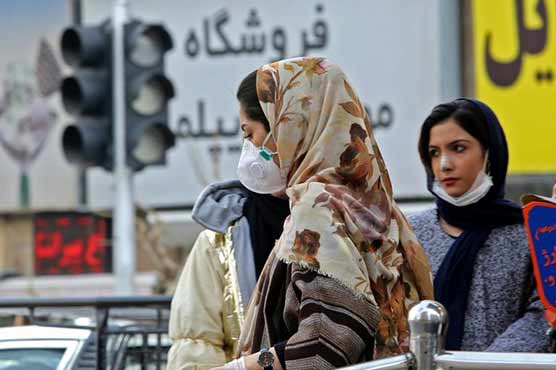Iran denies virus coverup and claim of 50 deaths

The authorities in the Islamic republic have come under mounting public pressure
(AFP) – Iran s government vowed Monday to be transparent after being accused of covering up the deadliest coronavirus outbreak outside China, dismissing claims the toll could be as high as 50.
The authorities in the Islamic republic have come under mounting public pressure since it took days for them to admit to "accidentally" shooting down a Ukrainian airliner last month, killing 176 people.
The government said on Monday that Iran s coronavirus death toll had jumped by four to 12 -- by far the highest outside China -- as its neighbours closed their borders and imposed strict quarantine measures. But Ahmad Amirabadi Farahani, a lawmaker from the holy city of Qom, south of Tehran, alleged the government was "lying" about the full extent of the outbreak.
The ILNA news agency, which is close to reformists, said the lawmaker spoke of "50 deaths" in Qom alone. "The rest of the media have not published this figure, but we prefer not to censor what concerns the coronavirus because people s lives are in danger," ILNA editor Fatemeh Mahdiani told AFP.
Farahani was wearing a face mask during the closed session of parliament but left after speaking, as he felt unwell, state news agency IRNA reported, adding sanitary workers then cleaned his seat.
Iran s government rejected his claim that the virus had killed 50 in Qom. "I categorically deny this information," Deputy Health Minister Iraj Harirchi said in a news conference aired live on state television. "This is not the time for political confrontations. The coronavirus is a national problem," he added.
Transparency pledge
The government pledged transparency over the outbreak. "We will announce any figures (we have) on the number of deaths throughout the country. We pledge to be transparent about the reporting of figures," its spokesman Ali Rabiei said.
Iran has been scrambling to contain the COVID-19 outbreak since it announced the first two deaths in the holy city of Qom on Wednesday last week. Authorities have since ordered the closure of schools, universities and other educational centres across the country as a "preventive measure".
A spokesman for Iran s parliament, Assadollah Abbassi, announced the latest four deaths among more than 60 infections after Monday s closed-door gathering of lawmakers.
Citing Health Minister Said Namaki, he said that "the cause of coronavirus infections in Iran are people who have entered the country illegally from Pakistan, Afghanistan and China".
Iran has yet to give a breakdown of where the other deaths occurred. The worst-hit province for infections is Qom, with 34 cases, according to health ministry figures.
The others are in Tehran with 13 infections, Gilan with six, Markazi with four, Isfahan with two and one each for Hamedan and Mazandaran. But the health minister said that one person who died of coronavirus in Qom, south of Tehran, was a businessman who had made several trips to China.
Namaki had unsuccessfully pleaded in January for Iran s government to order the suspension of all commercial flights between Iran and China. In his remarks to state television on Sunday, the minister said direct flights between Iran and China were now suspended, but the Qom businessman had travelled there "on a connecting flight".
Border closures
Since it emerged in December, the new coronavirus has killed more than 2,500 people in China. Iran now accounts for nearly half of the deaths elsewhere in the world, which currently stand at 30. Many of Iran s neighbours have reported cases of coronavirus in people who had travelled to the Islamic republic.
Afghanistan on Monday reported its first case in a person who had travelled to Qom. Baghdad also reported its first case on Monday -- an elderly Iranian citizen living in the southern Iraqi city of Najaf. Iraq has shut its border with the Islamic republic and imposed a travel ban. Similar preventive measures were imposed by Afghanistan, Armenia, Pakistan and Turkey.
Qom is a centre for Islamic studies and pilgrims, attracting scholars from Iran and beyond. Kuwait and Bahrain also confirmed their first novel coronavirus cases, all of whom had come from Iran.

